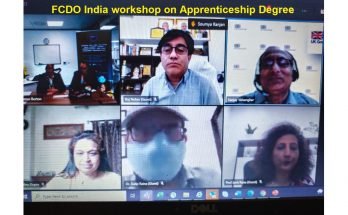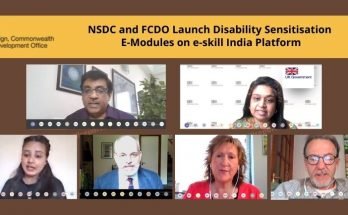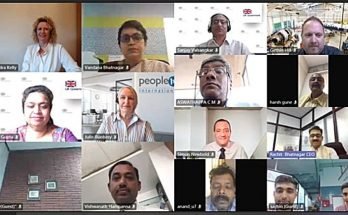DFID India, through its Skills for Jobs (SFJ) project and the recently notified National Council for Vocational Education and Training (NCVET) have collaborated for developing the guidelines and manuals for recognition and oversight of awarding bodies and assessments agencies for skills training in India.
This collaboration has also facilitated various consultations for and on behalf of NCVET to seek views on the proposed guidelines and manuals from key stakeholders of the skills ecosystem in India. As a part of this policy support endeavor, a knowledge sharing session on UK’s best practices on regulation of awarding bodies, qualifications and assessments was organized on 27 July 2020.
The session was attended by close to 150 delegates with rich participation from sector skill councils, assessment agencies and the regulators. Ms. Anu Gupta, Head-Skills, DFID India opened the session with
a brief introduction on DFID’s work in India, especially in the VET space and priority areas of the Skills for Jobs project. Dr. Vinita Agarwal, DG, NSDA and Executive Member, NCVET set the context of the session with an overview of NCVET’s regulatory frameworks and the importance of industry participation in VET space. She acknowledged the support by DFID for developing the guidelines and the importance of the learnings drawn from the UK systems.
The panelists- Mr. Mark Barber, Director Qualifications Network and an expert consultant with two government departments in the UK and OfQual, Mr. Rob Shaloe, CEO, Qualifications Network and Ms. Jane Robson, Director for NALP and a Responsible Officer for Qualifications Network and NALP spoke on VET ecosystem in the UK.
Mr. Barber gave an overview of the VET systems in the UK, explaining the quality assurance measures in place to ensure complete support is available to the learners. Mr. Shaloe spoke on the hybrid and regular models of assessments while also looking at space for collaboration between awarding bodies and universities. Ms. Robson spoke on strengths and weaknesses which define the relationship between awarding bodies and regulators and what could be the pitfalls which the Indian system should be aware of.
The speeches and presentation were followed by an interactive questions and answers session which saw active participation of the delegates. The session ended with a vote of thanks from DFID and NCVET to all delegates and the panelists.



